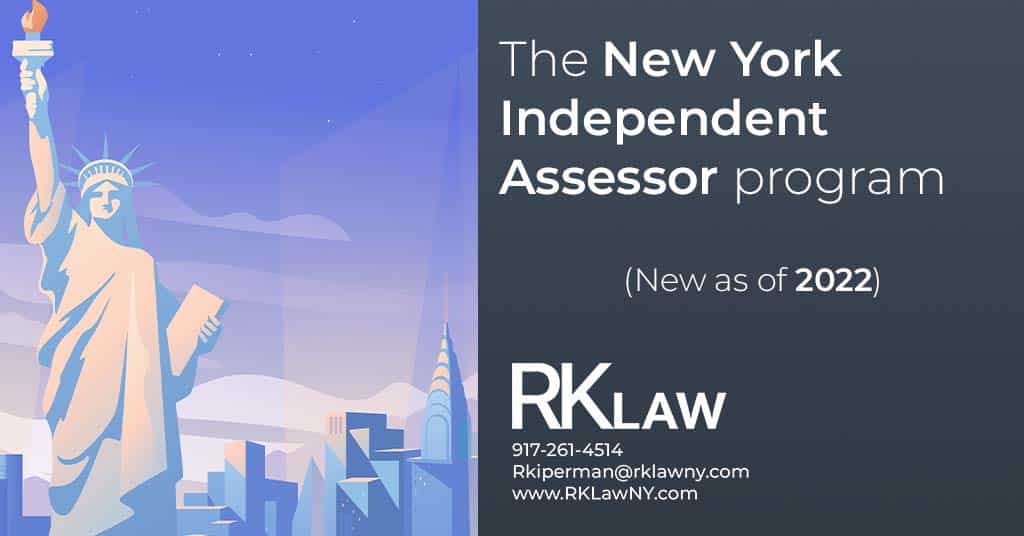What is the New York Independent Assessor (NYIA)?
Medicaid is implementing a change in the way assessments are done for community home care benefits. This system, the “New York Independent Assessor” (“NYIA”) system, will be the new way to enroll in Managed Long Term Care (MLTC) plans, and to apply for personal care (PC) or consumer-directed (CDPAP) services. This assessor will replace the Conflict-Free Evaluation. Some parts went into effect on May 16, 2022 and other parts will be phased in over the rest of the year.
When Does NYIA Start?
The NYIA program will be phased in. Some important dates to know are as follows:
May 16th is the start date for MLTC enrollment and all new requests for Personal Care and CDPAP made to mainstream or HARP plans, and to local districts (DSS/HRA) on a standard timeframe (pushed back from May 1st, which DOH had posted on Feb. 4, 2021)
July 1st is the start date for Immediate Need requests to DSS/HRA and all EXPEDITED PCS and CDPAP requests made to mainstream/HARP plans or to local districts (pushed back from May 1st)
Annual reassessments and requests for increases – by MLTC, managed care plans and local districts will not be done through the New York Independent Assessor system yet. The date for those is still to be determined.
What Will New York Independent Assessor Do?
The NYIA process will take the place of CHAs currently conducted by the Local Departments of Social Services (LDSS) and Managed Care Organizations (MCO). On May 16, 2022, the NYIA will begin conducting initial assessments only, i.e., for individuals seeking PCS, CDPAS or MLTC enrollment for the first time. On July 1, 2022, the NYIA will begin conducting initial assessments for individuals seeking expedited assessments based on an immediate need for services. Routine and non-routine reassessments will continue to be conducted by the LDSS and MCO until further notice.
The new NYIA process will involve a Community Health Assessment (“CHA”) or Independent Assessment (“IA”) by a registered nurse as well as a second step, consisting of an Independent Practitioner Panel (“IPP”) which includes an examination by a clinician – a clinical appointment (“CA”) to determine the number of home care hours to be provided to applicants for Medicaid-covered individuals seeking personal care services (PCS), consumer directed personal assistance services (CDPAS) and/or Managed Long Term Care (MLTC) Plan enrollment. A Practitioner’s Order (“PO”) will be signed by IPP. The nurse and clinician may not have a prior relationship with the applicant. If 12 hours or more are indicated or required, there will be another independent medical review required by an Independent Review Panel (“IRP”), another group consisting of at least two clinicians.
How Will I Be Affected By New York Independent Assessor?
There are many aspects that are still unclear and will be learned as more cases undergo this new process. It will be crucial to have an elder law attorney familiar with Medicaid assist you with navigating the new system.
What Other Changes are In Store for New York Medicaid?
The implementation of a 30 month look back period for home care has been looming over our heads through most of the pandemic. It looks like it may finally be implemented this fall 2022. If so, as of October 1, 2022, Medicaid applications for home care may be subject to a lookback period and review. Financial documentation will be reviewed back to October 1, 2020. If there are transfers or withdrawals made where the applicant did not receive fair market value Medicaid will impose a penalty period before Medicaid will begin paying for services. At first, the lookback will be 24 months back to October 1, 2020 and then thereafter, the look back will increase by a month until it is 30 months. Transfers made during that time will incur a transfer penalty. Note, though, that applications filed before October 1, 2022 will not have a lookback period imposed.
Keep in mind that there are certain asset transfers that will be deemed exempt from transfer penalties. For example, transfers to spouses, disabled children and by an individual under the age of 65 to a compliant supplemental needs trust will be deemed exempt. In addition, there are certain circumstances where a transfer of the applicants home may be exempt.
Also, eligibility for Personal care and CDPAP services and enrollment in MLTC will soon require the need for assistance for THREE Activities of Daily Living (ADLs) or dementia. They must be prescribed by an independent physician under contract with DOH, and approved by an independent assessor under contract with DOH– instead of the local district Medicaid agency and MLTC plan. Current recipients will be grandfathered in. The earliest implementation date is Oct. 1, 2022.
Stay tuned for further updated from our team.
For more information, please contact NYC Probate Litigation, Guardianship, NYC Probate and Estate Planning attorney Regina Kiperman:
Phone: 917-261-4514
Fax: 929-556-2089
Email: rkiperman@rklawny.com
Or visit her at:
40 Wall Street
Suite 2508
New York, NY 10005
Visit Regina on LinkedIn
Visit Regina on Facebook
This page is made available by the lawyer for educational purposes only as well as to give you general information and a general understanding of the law, not to provide specific legal advice. By using this site you understand that there is no attorney client relationship between you and the lawyer. The post should not be used as a substitute for competent legal advice from a licensed professional attorney in your state. ATTORNEY ADVERTISING.
